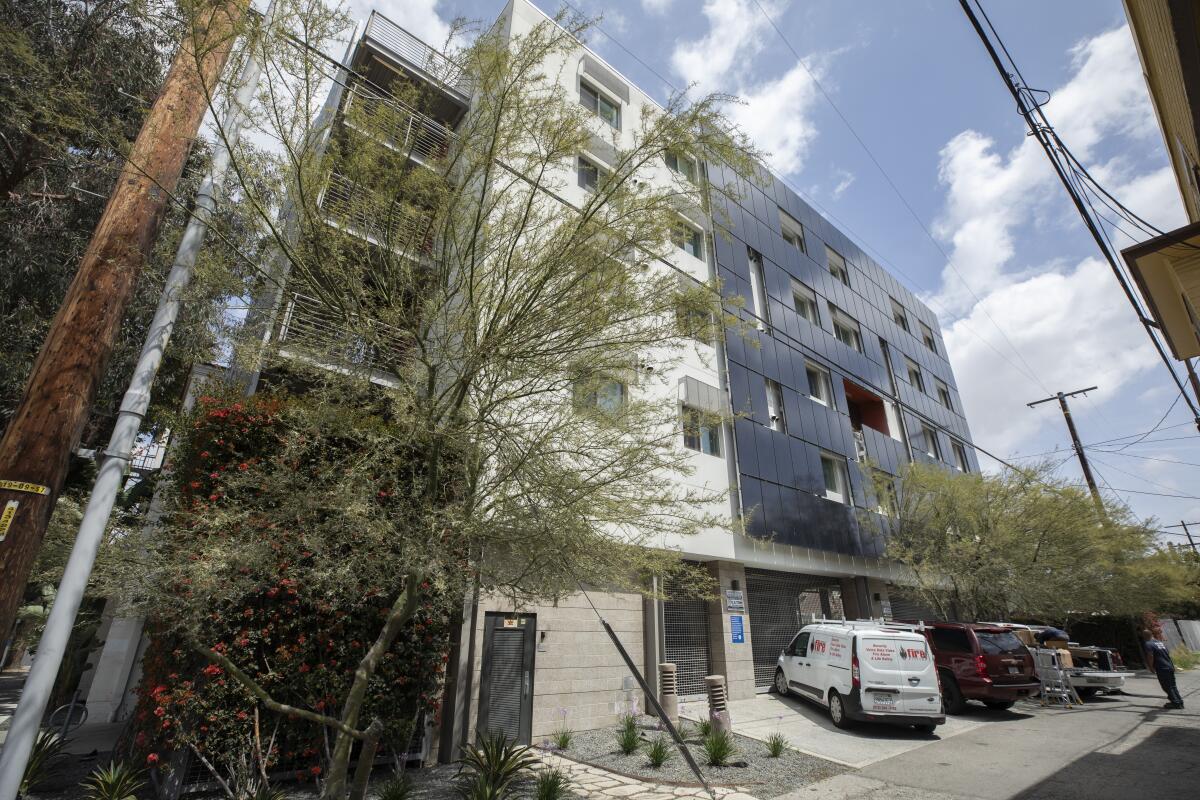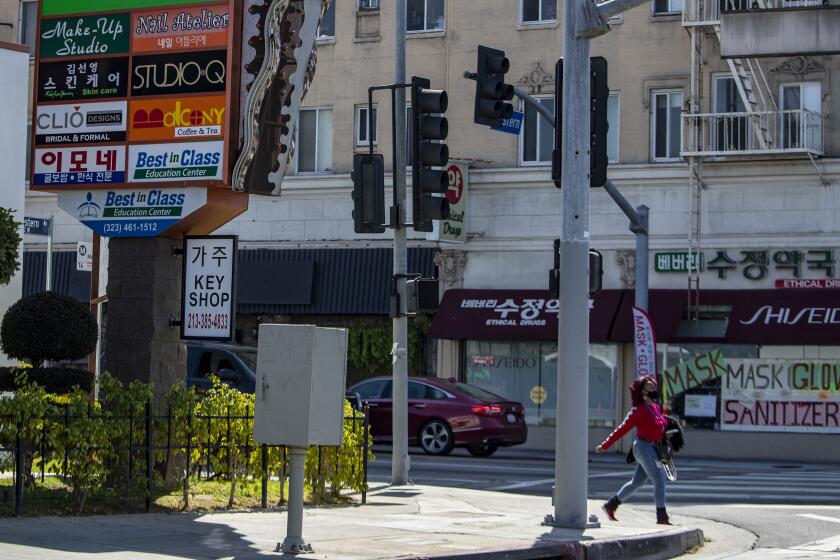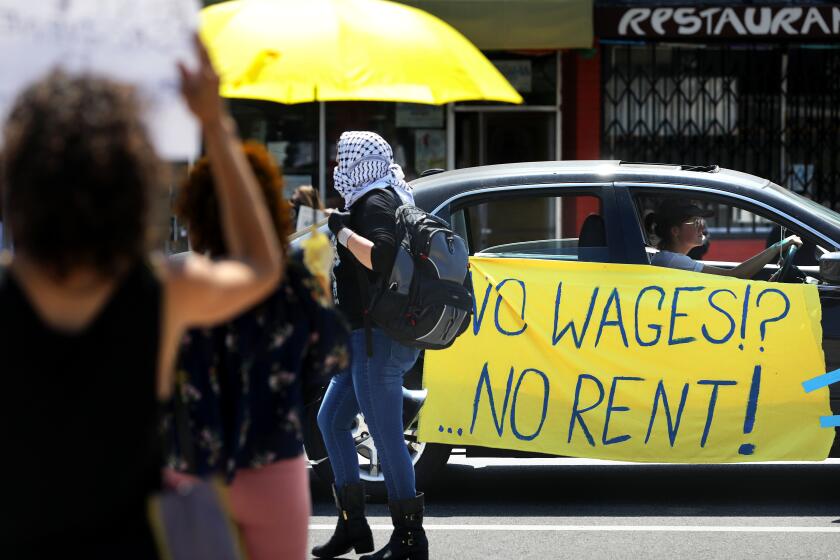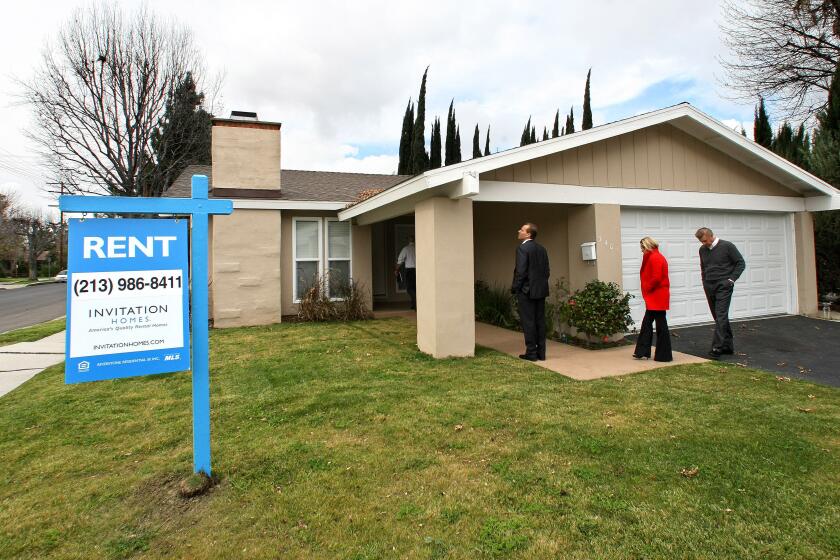Opinion: I believe in tenants’ rights. But L.A. is pushing out small landlords like me

- Share via
I am a “mom-and-pop” landlord in Los Angeles. I only own 12 units, which isn’t much compared with large corporations that have thousands of properties. I do not make a living as a landlord. In fact, I make only about $100 a month on a unit whose mortgage is several thousand dollars.
Over the last five years, I have felt under attack by elected officials in Los Angeles and wonder just how long I can afford to own rental property in Los Angeles. If the attitude of the elected officials toward landlords in the city doesn’t change, small landlords like me will leave, and the city will be left with only corporate landlords — and slumlords — who don’t care about rental laws or the well-being of their tenants.
We were first-generation Latina home buyers seeking to get our family out of a crowded 450-foot apartment. Here’s how our housing search went.
I’m a big believer in tenants’ rights. It’s true that many landlords treat their tenants poorly. If they didn’t, we wouldn’t need tenants’ rights laws. Also, I believe in rent control — families shouldn’t have their rents raised 10% or 20% in a year. However, in the name of preventing homelessness, the city and county have passed numerous measures that are making it impossible for small landlords to function and will ultimately hurt vulnerable tenants.
For example, in 2023, several years after the COVID crisis began, at a time when unemployment was at record lows and wages were rising at unprecedented rates, landlords were told they still could not raise rent. In the end, small landlords like me took it on the chin as we watched all of our costs increase dramatically.
Communities have a shared interest in keeping renters housed and keeping landlords in business. They provide an essential service: a roof over one’s head.
Currently, the county and city are preparing to provide free attorneys to every individual who is going through the eviction process, regardless of the reason. But if a tenant is being evicted for lack of payment of rent, there is only one legal argument that can be made, and that is around “habitability.” If a landlord is not maintaining the entire unit in a habitable condition, or a safe environment with working utilities, then the tenant has the right to not pay some or all of the rent.
Once the habitability issue has been ruled out, then there is no other legal reason for not paying rent. Unfortunately, based on my experience, attorneys representing tenants have learned how to manipulate our court system, drawing out eviction cases. That’s increased the cost to evict a tenant who has stopped paying rent for no legal reason to $20,000 to $30,000 (and ultimately not preventing evictions). How can a small landlord like me absorb that cost? The answer is that we can’t.
Dallas-based Invitation Homes will pay $3.7 million in civil penalties and restitution for violations of California’s tenant laws, Atty. Gen. Rob Bonta announces.
What are the repercussions of these policies? For me, the first of every month, when rent is due, is nerve-racking. I cross my fingers and pray that my tenants pay. I’ve had to evict only one tenant in 10 years from a house I own. That process depleted our savings so much that we may sell that house to recover. Other small landlords lost tens of thousands of dollars when their tenants stopped paying rent during the COVID rent freeze and either sold their buildings at a loss or drew down their own savings.
These policies ultimately hurt tenants. Landlords like me now can’t afford to take chances on tenants. That means if you don’t have good credit and verifiable income you are probably having a very hard time finding housing these days. That most often means undocumented workers who have no credit and work for cash, or those already struggling socioeconomically.
Douglas Emmett plans to kick out residents in all 577 occupied units of our rent-stabilized Westside building. That’s unnecessary and will worsen L.A.’s housing crisis.
As city and county government officials work to curb homelessness, they are relying on private landlords, who own the vast majority of housing here, to take the risk to provide homes to Angelenos. But they cannot ask us to risk our financial well-being while declaring war on us at the same time. If policies such as free lawyers for all tenants and rental freezes become the norm, small landlords like me will leave Los Angeles.
The L.A. City Council and county Board of Supervisors should instead view people like me as partners in providing housing and give us a seat at the table. For example, the county and city could set up advisory committees made up of small landlords who could make policy recommendations and be consulted on housing-related issues. When debating items like rent freezes, the City Council and county board should proactively invite mom-and-pop landlords to be part of the legislative process by meeting with us. And when measures are debated, we should be invited to testify at hearings. With these steps, we could work together to ensure that all parties are protected and reduce harm to the city’s residents and homeowners.
Joshua Kamali is a landlord in Los Angeles. He worked for almost 10 years in Democratic politics and policy in Washington, D.C., and California before becoming a nonprofit fundraiser. He now works in property development and construction and owns 12 units in Los Angeles County.
More to Read
A cure for the common opinion
Get thought-provoking perspectives with our weekly newsletter.
You may occasionally receive promotional content from the Los Angeles Times.














